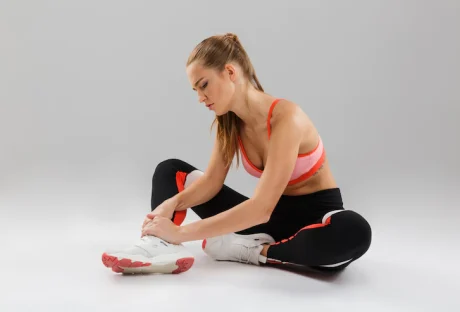If you’ve ever found yourself scrambling to put together a meal or settling for that oh-so-tempting takeout after a long day, trust us, you’re not alone. But what if we told you that with a dash of planning, a sprinkle of effort, and our trusted tips, you could sail smoothly into a week of nutritious eating? Buckle up, folks; it’s time to dive into the wondrous world of meal prep!
7 Meal Prep Tips You Should Know
Healthy eating is the key to healthy living. And in order to eat mindfully, we need to follow this life-saving meal preparations tips. Not only are they super easy, but they also have ingredients readily available in your kitchen. Let’s have a deeper look:
#1 Let’s Get Organized: The Meal Plan Blueprint 📝
Every culinary adventure begins with a well-constructed plan. Start by sketching out a weekly meal plan. Consider:
- How many meals do you need each day? If you’re aiming for three full meals and two snacks, jot that down.
- Dietary restrictions or goals: Whether you’re vegan, low-carb, or trying to incorporate more fiber, these guidelines will shape your choices.
- Ingredients already in the pantry: No need to buy another bag of quinoa if you’ve already got one.
Having a visual representation streamlines your grocery shopping, reduces waste, and discourages impulsive, unhealthy choices.
Tip: Use apps or printable templates to make this process even smoother!
#2 Quality Containers: Your Meal’s Protective Shield 🛡️
The right containers can be the difference between a soggy salad and a crisp one. Good quality, airtight containers
- Keep food fresher for longer
- Prevent messy spills
- Aid in portion control.
We’re huge fans of glass containers. They’re eco-friendly, microwave-safe, and honestly, your meal just looks more inviting in them!
Mistake to avoid: Using damaged containers. Even a small crack can let air in, compromising your food’s freshness.
#3 Embrace the Batch Cooking Bonanza 🥘
Designate specific days as your cooking days — maybe Sundays and Wednesdays. Prepare large batches of versatile basics such as:
- Grains: Quinoa, brown rice, or bulgur
- Proteins: Grilled chicken, tofu, beans, or lentils
- Veggies: A mix of steamed broccoli, roasted bell peppers, and blanched spinach.
These foundational elements can be repurposed into different meals throughout the week. For instance, that quinoa can become a stir-fry, a salad base, or even a breakfast porridge!
#4 Sauces & Dressings: The Flavor Magicians 🍶
A meal can be transformed with the right sauce or dressing. Imagine
- A zesty lemon dressing for your salads
- A spicy tomato sauce for those pasta nights
- A rich pesto for that extra zing.
Having a variety ensures your meals remain exciting.
And here’s a twist: ever tried a CBD-infused dressing? CBD edibles have gained popularity, and adding a few drops of CBD oil to your dressings can combine the potential calming effects with the vibrancy of your meal. So see more about their use and experiment!
#5 Go Raw Before the Big Thaw 🥦
Some produce shines best when cooked just before eating. Foods like snap peas, cherry tomatoes, or certain fruits are best stored raw. When mealtime comes, a quick sauté or a simple addition to your meal ensures they maintain their natural essence.
Tip: For berries, wash them only just before consumption. This prevents mold growth and keeps them fresher.
#6 Breakfast Boost: Overnight Success 🌙
The morning rush is real, but that doesn’t mean you should skimp on the most important meal of the day. Overnight oats are a savior:
- Combine rolled oats, milk (or a milk alternative), and a touch of sweetener
- Add in flavors like vanilla or cinnamon
- Leave in the fridge overnight.
Come morning, top with fruits, nuts, or even a sprinkle of cocoa nibs for a hearty, nutritious breakfast.
#7 Stay Hydrated with DIY Infused Waters 💧
While meals take center stage, hydration plays a crucial supporting role. Enhance your water with delightful infusions:
- Cucumber-mint for a refreshing burst
- Lemon-ginger for a touch of zing
- Strawberry-basil for a fruity, herbaceous blend.
Apart from making your hydration game strong, these infused waters can offer gentle nutritional boosts. And remember, water isn’t just about quenching thirst; it plays a vital role in digestion and nutrient absorption.
Bonus Bites: Trio of Nutritious Quick-Fixes for Hectic Weeks 🍽️
Life gets busy, and sometimes we need straightforward, nourishing recipes that won’t eat up our time. These three dishes are designed with simplicity in mind, ensuring you fuel up without fuss. From breakfast to dinner, we’ve got your back!
Morning Kick-Starter: Chia Berry Parfait
Ingredients:
- Chia seeds: 3 tbsp
- Almond milk: 1 cup
- Mixed berries (blueberries, raspberries): ½ cup
- Honey or maple syrup: 1 tbsp
- Granola: a handful
Instructions:
Mix chia seeds with almond milk and sweetener of choice. Let it sit in the fridge for at least an hour or overnight. In a glass, layer the chia pudding, berries, and granola. Repeat the layers, top with a few more berries, and enjoy!
Lunch on-the-go: Chickpea Spinach Salad
Ingredients:
- Cooked chickpeas: 1 cup
- Spinach leaves: 2 cups
- Cherry tomatoes: ½ cup, halved
- Feta cheese: 50 grams, crumbled
- Lemon vinaigrette: to taste
Instructions:
In a large bowl, toss together chickpeas, spinach, and cherry tomatoes. Drizzle with lemon vinaigrette and give it a good mix. Top with crumbled feta, and it’s ready to pack or eat!
Dinner Delight: Teriyaki Zucchini Noodles
Ingredients:
- Zucchini: 2, spiralized into noodles
- Teriyaki sauce: 3 tbsp
- Tofu or grilled chicken: 100 grams, diced
- Red bell pepper: 1, thinly sliced
- Sesame seeds: for garnish
Instructions:
In a pan over medium heat, sauté tofu or chicken until slightly browned. Add bell peppers and stir for 2 minutes. Toss in zucchini noodles and teriyaki sauce. Cook for 3-4 minutes, ensuring the zucchini remains slightly crunchy. Serve hot, garnished with sesame seeds.
***
There you have it — three recipes that promise maximum flavor with minimal effort. Here’s to nutritious, delicious, and efficient eating!
In Closing…
Remember, meal prepping is not about stringent rules; it’s about making life simpler and eating healthier. The initial effort you put in pays off generously throughout the week. So, don your apron, channel that inner chef, and embark on a week of fuss-free, nutritious eating. And as always, we’re here, cheering you on every bite of the way! 🍴🌱🎉























